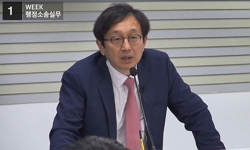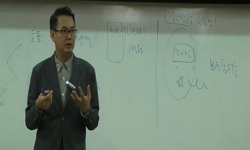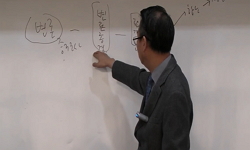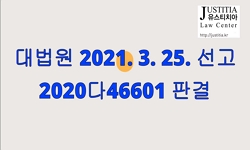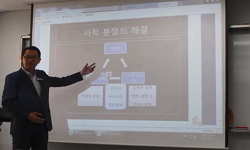In terms of lawsuits of the Joseon dynasty period, the most valued were the principle of requiring parties directly involved in the lawsuit to present relevant material on their own (當事者主義), and the practice of placing importance upon pleads...
http://chineseinput.net/에서 pinyin(병음)방식으로 중국어를 변환할 수 있습니다.
변환된 중국어를 복사하여 사용하시면 됩니다.
- 中文 을 입력하시려면 zhongwen을 입력하시고 space를누르시면됩니다.
- 北京 을 입력하시려면 beijing을 입력하시고 space를 누르시면 됩니다.

17세기 중엽 해남 윤씨가의 노비소송 = The Lawsuits filed by the Haenam region`s Yun House, over Nobi servants, in the mid-17th century
한글로보기https://www.riss.kr/link?id=A82672295
- 저자
- 발행기관
- 학술지명
- 권호사항
-
발행연도
2011
-
작성언어
-
- 주제어
-
KDC
900
-
등재정보
KCI등재
-
자료형태
학술저널
-
수록면
105-146(42쪽)
- DOI식별코드
- 제공처
- 소장기관
-
0
상세조회 -
0
다운로드
부가정보
다국어 초록 (Multilingual Abstract)
In terms of lawsuits of the Joseon dynasty period, the most valued were the principle of requiring parties directly involved in the lawsuit to present relevant material on their own (當事者主義), and the practice of placing importance upon pleads or arguments made at court(辯論主義). They became distinct characteristics of the Joseon society lawsuits. In other words, the parties involved in the lawsuit were demanded to collect and present all the necessary material pertinent to the case on their own. Under such principles, the people who either initiated or involved in the lawsuit had to be equipped with the capability to see the trial through, and ideally they would have to be a relatively equitable match. Yet in reality, either the parties involved were without such capability, or one side was weaker than the other. The practice of placing ultimate importance upon pleads or arguments made at the court was in danger of being abused, or underused for that matter. In the history of the Western countries of the late 19th century, the right entitled to an overseer to ensure justice is served(釋明權) was conceptualized in order to ensure more fair and appropriate trials. Granting an overseer to exercise this right contributed very much to the civilian lawsuits that operated upon [the somewhat dangerous] ``Involved parties only-principle,`` and enabled equality to be preserved in substantial terms. It should be noted that an instance, in which the local administrative official presiding at the lawsuit(訟官) exercised this right of his to reach a fair judgement, can be found from the lawsuits filed by the Haenam region`s Yun House over Nobi servants, in the mid-17th century. Of course, the decision of the Gangjin Hyeon`gam prefect, the official in question, to exercise such right did not lead directly to a judgment and the issuing of a sentence, as in contemporary trials. His role was limited, and only his opinion and certain questions regarding the case(``報辭``) were relayed to a higher office with the case itself. Yet as apresider at the case, he raised ``reasonable doubts,`` and was faithful to his duty of ``raising questions,`` in order to ensure a fair and appropriate trial. Also as an exerciser of the right to literally find the truth, he maintained an impartial and neutral attitude, and never leaned to a particular side. This example of the Gangjin prefect`s exercise of this authority shows us that the Joseon society was enjoying a high level of legal culture.
동일학술지(권/호) 다른 논문
-
18세기 말 수원(水原) 읍치(邑治)지역의 가옥 양태와 가격
- 한국고문서학회
- 임학성 ( Hag Seong Lhim )
- 2011
- KCI등재
-
- 한국고문서학회
- 이남희 ( Nam Hee Lee )
- 2011
- KCI등재
-
전근대 해남윤씨가의 맹골도 지배와 주민들의 세공(稅貢) 회피
- 한국고문서학회
- 김현영 ( Hyun Young Kim )
- 2011
- KCI등재
-
강원도내 호구(戶口) 고문서(古文書)의 현황과 특이 사례에 대한 검토
- 한국고문서학회
- 유재춘 ( Jae Chun Yu )
- 2011
- KCI등재




 KCI
KCI KISS
KISS
